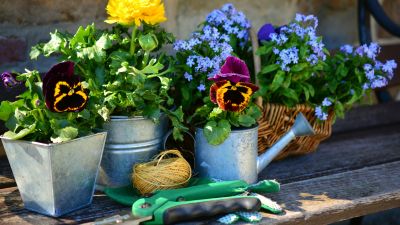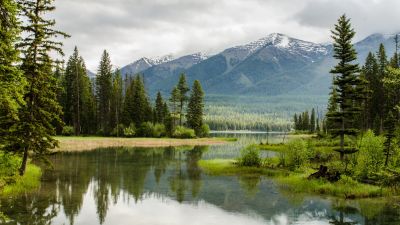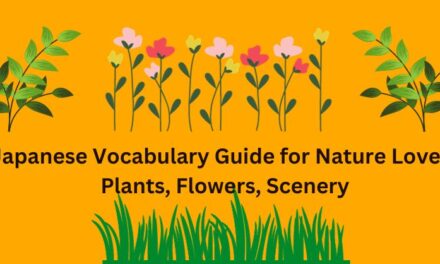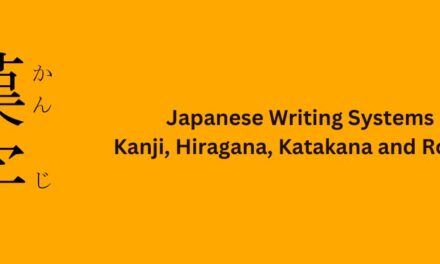Learn Japanese Vocabulary for Plants, Flowers, and Nature
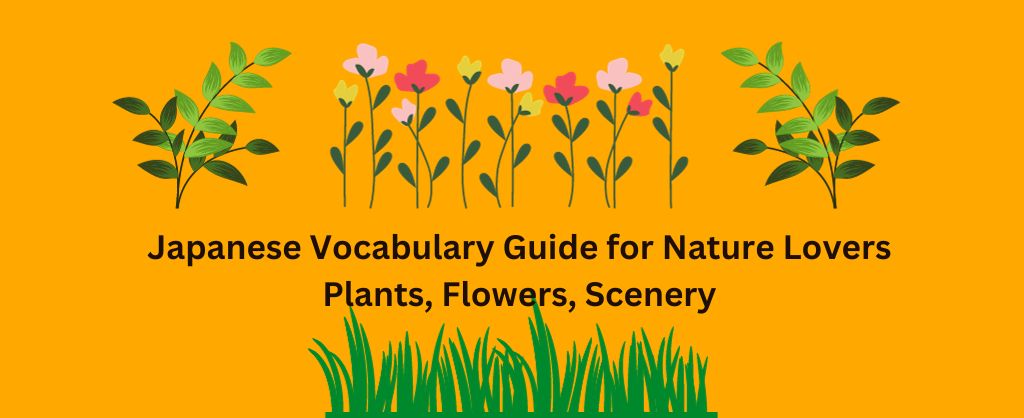
Register For the Online Japanese Event
Learning how to talk about plants, flowers, and nature in Japanese can greatly enhance your experience visiting Japan’s beautiful parks and gardens.
Topics covered in this article:
- Common Plants and Flowers
- Talking About Nature in Japanese
- Useful Phrases to Use During the Conversation
Vocabulary for Common Plants and Flowers
Japan’s four distinct seasons and varied climate zones allow diverse flora to thrive across the country. You’ll likely encounter gorgeous flowers like sakura (cherry blossoms), ume (plum blossoms), and botan (peonies) on your travels.
Knowing the Japanese names for these and other popular plants and blooms will help you fully appreciate their beauty. This section covers key terms for flowers and plants you’ll frequently see in gardens, parks, and the countryside.
Learn these words to discuss Japan’s floral wonders in the local language.
花 (hana) – Flower
木 (ki) – Tree
草 (kusa) – Grass
竹 (take) – Bamboo
桜 (sakura) – Cherry blossoms
梅 (ume) – Plum blossoms
菊 (kiku) – Chrysanthemum
蓮 (hasu) – Lotus
牡丹 (botan) – Peony
芍薬 (shakuyaku) – Peony
つばき (tsubaki) – Camellia
バラ (bara) – Rose
ひまわり (himawari) – Sunflower
すずらん (suzuran) – Lily of the valley
せり (seri) – Parsley
なでしこ (nadeshiko) – Pink
くちなし (kuchinashi) – Gardenia
Some Key Phrases
きれいな花ですね。 – What beautiful flowers!
この木はとても高いです。 – This tree is very tall.
公園にはたくさんの木があります。 – There are many trees in the park.
きれいな桜ですね。 – Beautiful cherry blossoms, aren’t they?
この花はなんの花ですか。 – What kind of flower is this?
どの花が一番好きですか。 – Which flower do you like best?
私はバラが大好きです。 – I love roses.
春には花が咲きます。 – The flowers bloom in spring.
花壇には色とりどりの花が植えてあります。 – The flowerbed is planted with colorful flowers.
庭には四季折々の花が咲き乱れます。 – Flowers of every season bloom profusely in the garden.
Talking About Nature in Japanese
In a country with such rich natural diversity, knowing how to talk about mountains, rivers, the ocean, and other landscapes will serve you well. Japan has towering alpine mountains, intricate coastlines, vast forests, and more for you to experience. Learning terminology to properly discuss natural features and phenomena will allow you to immerse yourself in Japan’s scenic nature.
Here are some key terms and phrases related to nature in Japanese:
自然 (shizen) – Nature
山 (yama) – Mountain
森 (mori) – Forest
川 (kawa) – River
湖 (mizuumi) – Lake
海 (umi) – Ocean
星 (hoshi) – Star
月 (tsuki) – Moon
日 (hi) – Sun
雲 (kumo) – Cloud
空 (sora) – Sky
虹 (niji) – Rainbow
野生動物 (yasei doubutsu) – Wildlife
緑 (midori) – Green
青 (ao) – Blue
赤 (aka) – Red
きれいな景色ですね。 – What a beautiful view.
山にはたくさんの木があります。 – There are many trees in the mountains.
川で水遊びをします。 – Let’s play in the river.
夜空の星がきれいです。 – The stars in the night sky are beautiful.
虹がかかっていますね。 – There’s a rainbow.
緑の木々が風に揺れています。 – The green trees are swaying in the wind.
Beyond the basics, enrich your nature and scenery vocabulary even further with these additional Japanese words. Japan’s varied geography, wildlife, and natural sights give you the chance to broaden your descriptive language.
Terms for geographical features like islands, valleys, and volcanoes are included. You’ll also learn words related to natural phenomena like erosion and wildlife species. Expanding your nature-related Japanese vocabulary will enhance your ability to appreciate Japan’s magnificent natural landscapes.
Here are some additional useful Japanese words related to nature:
川岸 (kawagishi) – Riverbank
滝 (taki) – Waterfall
石 (ishi) – Rock
砂 (suna) – Sand
波 (nama) – Wave
島 (shima) – Island
丘 (oka) – Hill
谷 (tani) – Valley
野原 (nohara) – Field
森林 (shinrin) – Forest
自然公園 (shizen kouen) – Nature park
湖水 (kosui) – Lake water
海水浴 (kaisuiyoku) – Ocean swimming
夕日 (yuhi) – Sunset
野生動物 (yasei doubutsu) – Wildlife
池 (ike) – Pond
滝壺 (takitsubo) – Pool at the base of a waterfall
噴火 (funka) – Volcanic eruption
Sample Sentences
山の中腹に小さな湖があります。 – Halfway up the mountain there is a small lake.
夕陽が海に沈んでいます。 – The setting sun is sinking into the ocean.
川は静かに曲がりくねっています。 – The river gently winds its way along.
森にはたくさんの鳥のさえずりが聞こえます。 – You can hear many birds singing in the forest.
夜空には満点の星が輝いています。 – The night sky is filled with twinkling stars.
木々の葉が秋風に揺れています。 – The leaves on the trees sway in the autumn breeze.
山頂からは景色が一望できます。– You can see the view for miles from the mountain peak.
Useful Phrases to Use During the Conversation
一番好きな植物/お花は何ですか?- Ichiban sukina shokubutsu/ohana wa nandesuka? – What is your favorite plant/flower?
嫌いな植物はありますか?- Kirai na shokubutsu wa arimasu ka? – Do you have any plants you don’t like?
家に植物はありますか?- Ie ni shokubutsu wa arimasuka? – Do you have plants at home?
植物は好きですか?- Shokubutsu wa suki desuka? – Do you like plants?
植物を育てるのは得意ですか?- Shokubutsu o sodateru no wa tokui desuka? – Are you good at growing plants?
家で野菜を育ていますか?- Ie de yasai o sodatete imasuka? – Do you grow vegetables at home?
If no: 家で野菜を育てみたいですか?- Ie de yasai o sodatete mitai desu ka? – Do you want to try growing vegetables at home?
どの野菜が一番好きですか?- Dono yasai ga ichiban sukidesuka? – What is your favorite vegetable?
どのフルーツが一番好きですか?- Dono furuutsu ga ichiban suki desuka? – Which fruits are your favorite?
どのお花の匂いが好きですか?- Dono ohana no nioi ga sukidesuka? – Which flower do you think has the best fragrance?
今住んでいるところには自然がいっぱいありますか?- Ima sundeiru tokoro ni wa shizen ga ippai arimasuka? – Do you have a lot of nature where you live?
春はどんな花が咲きますか?- Haru wa donna hana ga sakimasuka? – What kinds of flowers bloom in the springtime? (where you live)
夏はどんな花や植物がありますか?- Natsu wa donna hana ya shokubutsu ga arimasuka? – What kinds of flowers and plants are there in the summer? (where you live)
秋は紅葉がありますか?- Aki wa kouyou ga arimasuka? – Do the leaves change colors in the fall?
花粉のアレルギーはありますか?- Kafun no arerugii wa arimasuka? – Do you have allergies to pollen?
よくハイキングに行きますか?- Yoku haikingu ni ikimasuka? – Do you go hiking often?
自然は好きですか?- Shizen wa suki desuka? – Do you like nature?
Conclusion
Learning Japanese nature vocabulary and phrases allows you to fully appreciate Japan’s natural beauty. Start with the key terms, then build up your nature-related vocabulary.
Use the sample sentences to help you describe beautiful scenery. Immersing yourself in Japan’s rich nature will be an unforgettable experience.

